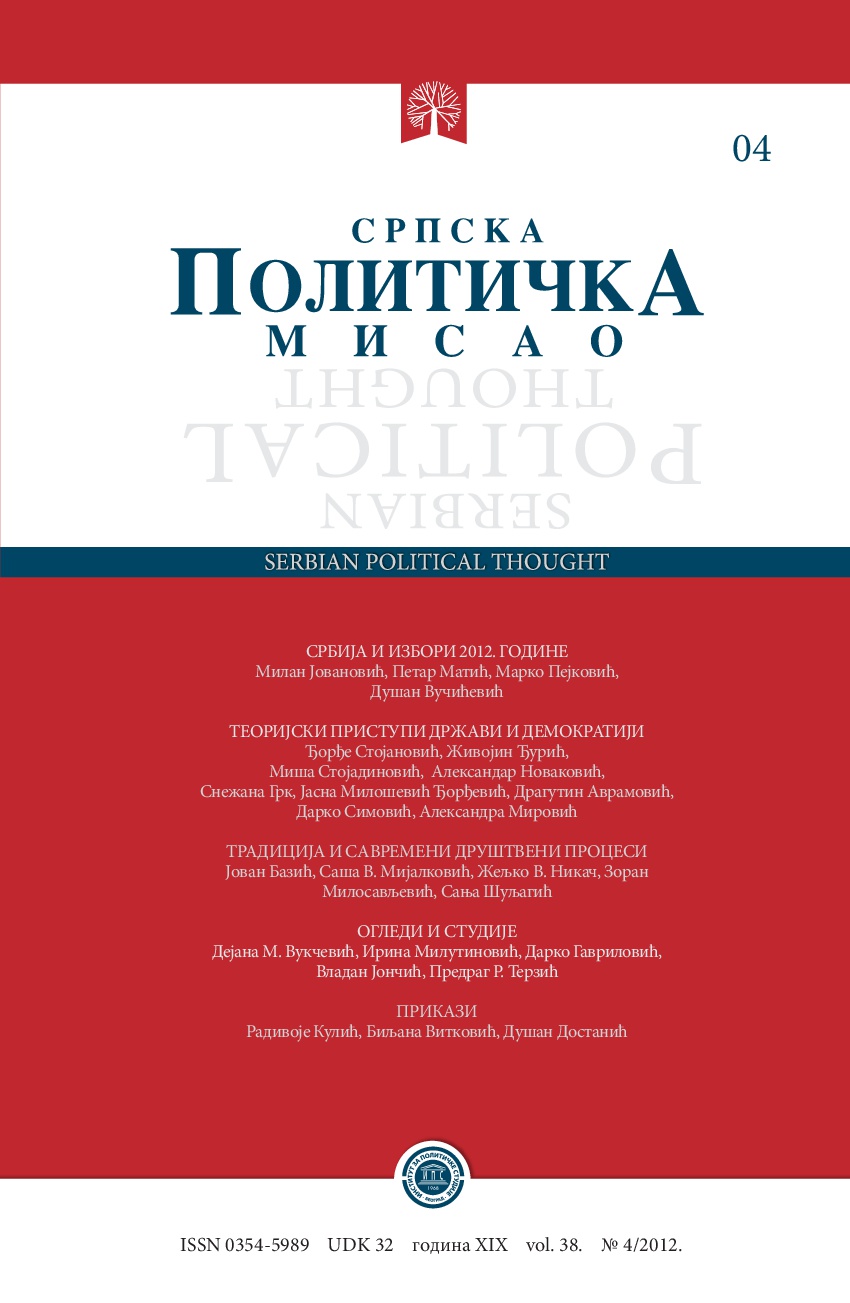Параметар социјалног капитала: поверење грађана Cрбије у политичке институције
Social Capital Parameter: Serbian Citizen’s Confidence in Political Institutions
Author(s): Jasna Milošević-ĐorđevićSubject(s): Government/Political systems, Politics and society, Comparative politics
Published by: Институт за политичке студије
Keywords: trust; institutions; social capital; research; descriptive statistic;
Summary/Abstract: This paper critically analysis various conceptual approaches to socal capital phenomenon. Criterias for social capital definition categorisation are also discussed. Social capital is complex phenomenon and could be defined differently, theoretically and operationally. The most frequent definitions are based on economic and/or civil parameters of one country. All parametes of socal capital alone, has limited theoretical and explanational power. But it is important to operationalize the concept, in order to make comparison of different states possible, to develop the strategy for strengthen the state and to follow the trends. Focus is on one element of socail capital: trust in the state institutions. Analysis has been made based on the data from the comercial surveys, exploring Serbian citizen’s confidence in the political and state institutions, during the period of 8 years. Data are interprated and compared with the trends from other countries. Church is in the first group of institutions in Serbia (grouped by citizens confidence), in which more then 50% of the citizens have confidence; second group of institutions are presented by army, President of Serbia and police to which between 20% to 40% of citizens show confidence; third group of institutions are represented by government, parliament, and jurisdiction to which less then 20% of Serbian citizens show confidence. (Dis)Trust in state institutions is stable, during the surveyed 8 year’s period, and group structures shows that trust in institutuins is dependent on actual political power. Negative perception of the direction in which country is going, is dominant among most citizens. There is a link between general confidence in the state and confidence toward state institutions. This paper concludes with agreement to other author’s findings, that the social capital of Serbian state is not developed enough, argumented by the low confidence of Serbian citizen’s in the state institutions compared to other developed countries.
Journal: Српска политичка мисао
- Issue Year: 2012
- Issue No: 4
- Page Range: 197-212
- Page Count: 16
- Language: Serbian

